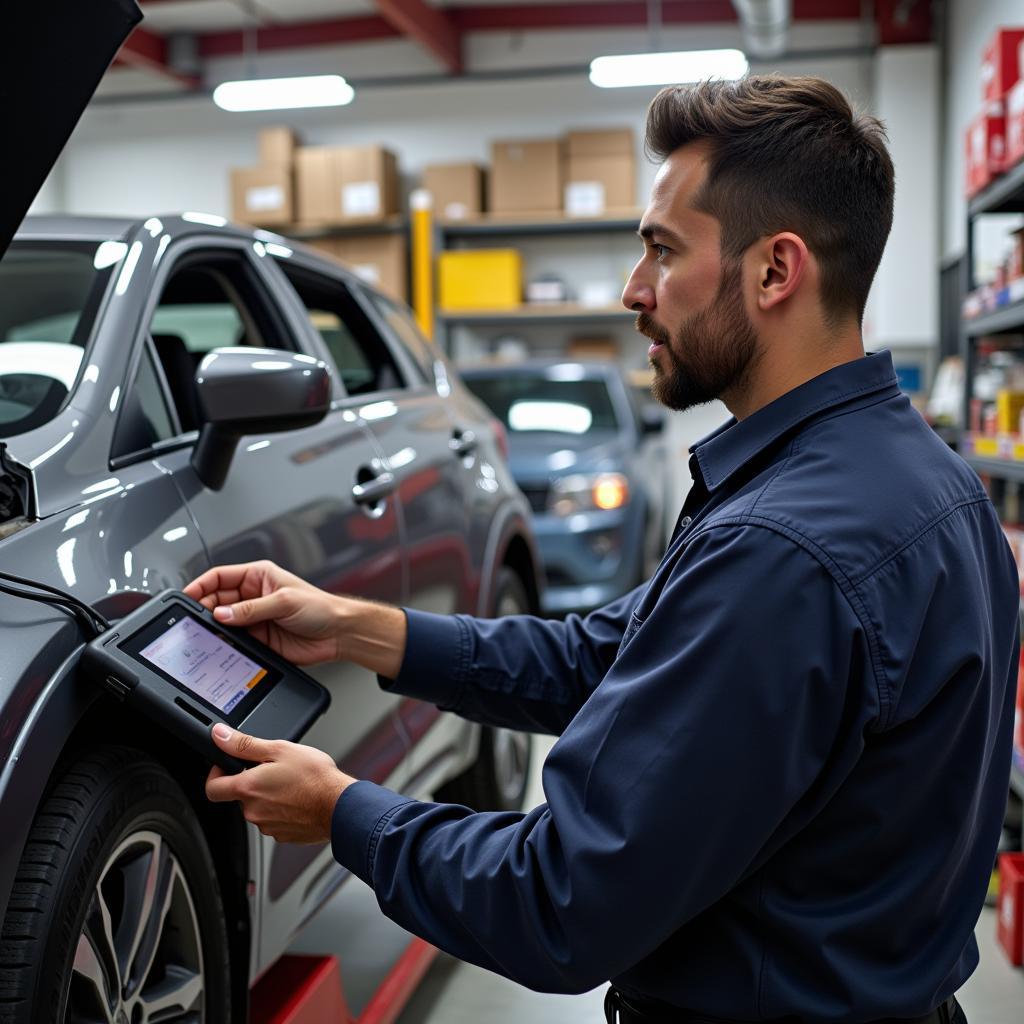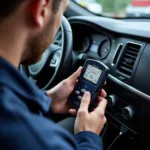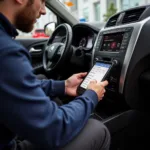Finding out what’s wrong with your car can be stressful, especially when that pesky check engine light pops on. Luckily, there are many places that do diagnostic tests on cars to help you pinpoint the issue. This guide will explore your options, helping you make an informed decision about where to get your car diagnosed.
Where Can I Find Places That Do Diagnostic Tests On Cars?
From dealerships to independent mechanics, you have several options when looking for places that do diagnostic tests on cars:
1. Dealerships
Dealerships are a go-to for many car owners. They employ technicians specifically trained on your car’s make and model, and often have access to specialized diagnostic equipment.
Pros:
- Specialized knowledge of your car’s make and model
- Access to manufacturer-specific diagnostic tools
- May offer loaner vehicles or shuttle services
Cons:
- Typically more expensive than independent mechanics
- May require appointments booked in advance
2. Independent Mechanics
Independent mechanics offer a more personalized service and often have competitive pricing. They work on a wider range of car brands, giving them a broad perspective on common car problems.
Pros:
- Often more affordable than dealerships
- Personalized service and attention
- May offer more flexible scheduling
Cons:
- May not have access to the latest manufacturer-specific tools
- Level of expertise can vary between mechanics
3. Auto Parts Stores
Many auto parts stores offer free or low-cost diagnostic tests. While they may not provide a comprehensive diagnosis, they can often read basic engine codes and help you narrow down the issue.
Pros:
- Affordable, often free or discounted diagnostic tests
- Convenient locations and readily available
- Can offer advice on parts and repairs
Cons:
- Diagnostic capabilities may be limited
- Primarily focused on selling parts
- May not have qualified mechanics to interpret results
Understanding Car Diagnostic Tests
A car diagnostic test uses a specialized tool, called an OBD-II scanner, to communicate with your car’s computer system. This system monitors various components and functions in your vehicle.
When a problem arises, the system stores a diagnostic trouble code (DTC) in its memory. Mechanics use these codes, along with other tests and observations, to identify the root cause of the problem.
What Can a Diagnostic Test Tell You?
A diagnostic test can reveal a range of issues, including:
- Engine problems: Misfires, fuel system issues, oxygen sensor problems, and more.
- Transmission issues: Slipping gears, rough shifting, and other transmission-related problems.
- Emissions system faults: Problems with the catalytic converter, oxygen sensors, or other emissions-related components.
- Electrical system issues: Battery problems, alternator malfunctions, and other electrical faults.
How to Choose the Right Place for Your Car Diagnostic Test
Choosing the right place for your diagnostic test depends on your needs and budget:
- For complex issues or newer cars: Consider a dealership for their specialized knowledge and equipment.
- For routine maintenance or older cars: An independent mechanic often offers a balance of expertise and affordability.
- For basic code reading or a quick check: Auto parts stores can be a convenient and budget-friendly option.
“Remember,” says John Miller, Senior Automotive Technician at ABC Auto Services, “a diagnostic test is only the first step. It’s crucial to discuss the results and recommended repairs with your chosen mechanic to ensure you understand the scope of work and associated costs.”
Conclusion
Finding reliable places that do diagnostic tests on cars is crucial for maintaining your vehicle’s health and addressing issues promptly. By understanding your options and considering factors like budget, car model, and the complexity of the problem, you can make an informed decision about where to get your car diagnosed. Remember to communicate openly with your chosen mechanic to ensure a smooth and successful repair process.
FAQs
1. How much does a car diagnostic test cost?
Prices vary, but expect to pay between $50 to $150. Some auto parts stores offer free or discounted tests.
2. Can I do a car diagnostic test myself?
Yes, affordable OBD-II scanners are available for purchase. However, interpreting the codes and diagnosing the problem accurately often requires mechanical expertise.
3. Is a check engine light always serious?
Not necessarily. It could indicate a minor issue like a loose gas cap or a more serious problem.
4. How often should I get a car diagnostic test?
It’s a good idea to get a diagnostic test annually or if you experience any unusual car behavior.
5. Can a diagnostic test tell me if I need new brakes?
It depends. If your brake system has an electronic sensor, the diagnostic test might detect an issue. However, a visual inspection is still the most reliable way to assess brake pad wear.
Need help finding the right car diagnostic machine for sale in Kenya?
Check out our selection of high-quality electronic car diagnostic equipment for accurate and efficient vehicle diagnostics. Contact us via WhatsApp at +1(641)206-8880 or email us at [email protected]. Our 24/7 customer support team is here to assist you!


